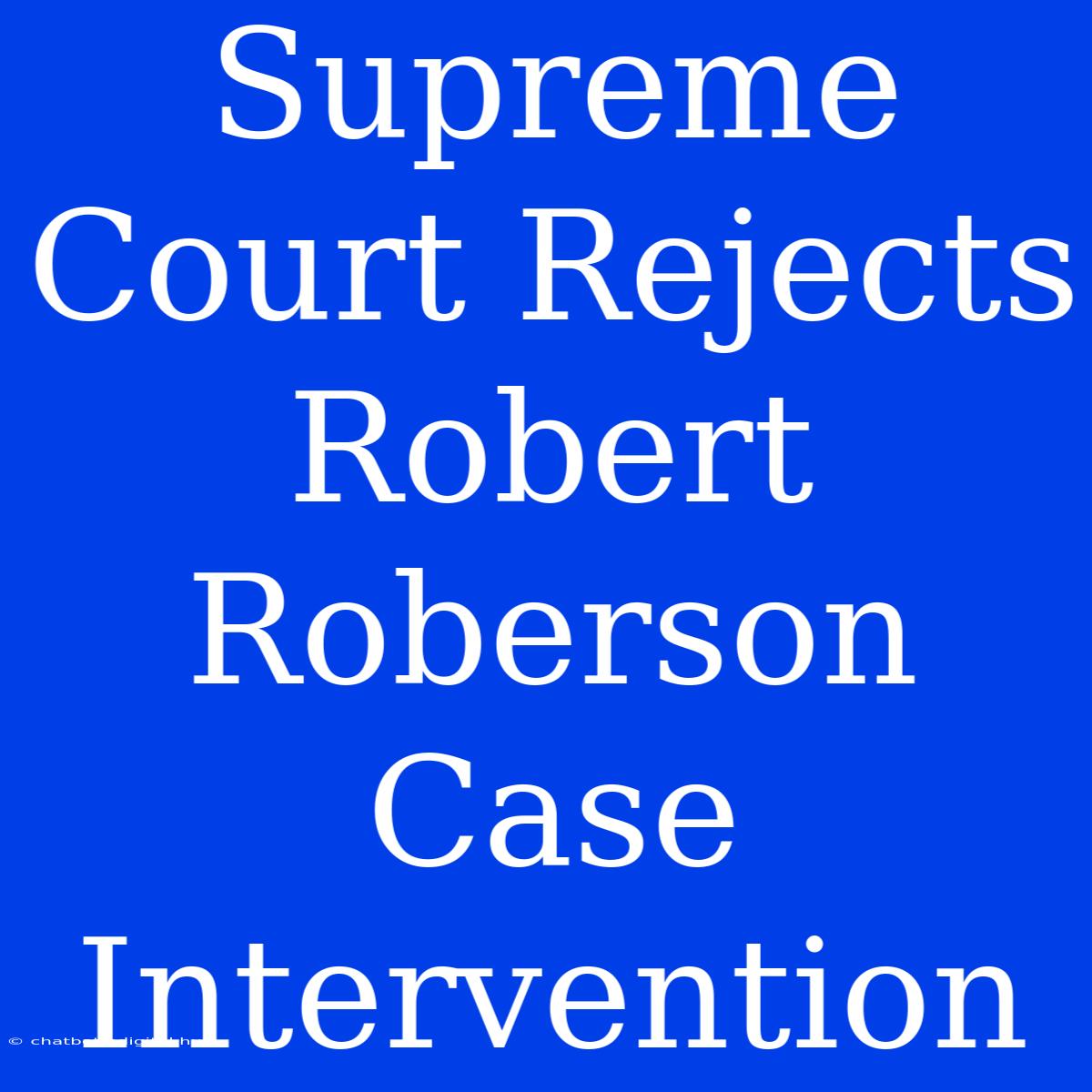Supreme Court Rejects Intervention in Robert Roberson Case: What Does It Mean for Criminal Justice?
The Supreme Court's recent decision to decline intervention in the case of Robert Roberson has sent shockwaves through the legal community. The case, which centers around Roberson's conviction for a crime committed as a juvenile, highlights a crucial issue in criminal justice: the application of life sentences without parole for minors.
**Editor Note: The Supreme Court's decision to reject intervention in the case of Robert Roberson has significant implications for the interpretation of criminal justice laws and the application of life sentences for minors. **
This case is significant because it challenges the established legal framework surrounding juvenile sentencing. It brings to light the evolving understanding of adolescent brain development and the potential for rehabilitation in young offenders. The court's decision to not intervene sparks debate about the proportionality of life sentences for juveniles, emphasizing the complexities of balancing punishment with the potential for rehabilitation.
Analysis
This article provides a comprehensive analysis of the Supreme Court's decision and its implications for the criminal justice system. It explores the following key aspects:
- The Robert Roberson Case: A detailed account of the case and the arguments presented to the court.
- Juvenile Sentencing Laws: An examination of the legal landscape surrounding sentencing for minors.
- Rehabilitation Potential: Discussing the evolving understanding of brain development and its implications for rehabilitation.
- Proportionality of Sentencing: Analyzing the debate surrounding the proportionality of life sentences for juveniles.
Key Takeaways from the Supreme Court Decision:
| Takeaway | Explanation |
|---|---|
| Limited Scope of Intervention | The Supreme Court's decision suggests a limited role for intervention in individual cases, even when significant legal issues are at stake. |
| Emphasis on Established Precedents | The decision highlights the court's adherence to existing legal precedents, even when faced with evolving social and scientific understandings. |
| Uncertain Future for Juvenile Sentencing | The decision leaves the future of juvenile sentencing law in a state of uncertainty, prompting further debate and potentially leading to future legal challenges. |
| Continued Importance of Rehabilitation | Despite the court's decision, the case underscores the continued importance of rehabilitation efforts for juvenile offenders, with a focus on providing opportunities for redemption and reintegration into society. |
The Robert Roberson Case
The case of Robert Roberson revolves around his conviction for a crime committed as a juvenile. Roberson, who was 17 years old at the time of the offense, was sentenced to life imprisonment without parole. The Supreme Court's decision not to intervene in his case has fueled discussions about the proportionality of such sentences for young offenders.
Juvenile Sentencing Laws
The legal framework surrounding juvenile sentencing is complex and evolving. Over the past few decades, there has been a growing recognition of the unique developmental characteristics of adolescents and their capacity for rehabilitation.
Facets of Juvenile Sentencing Laws
| Facet | Explanation

